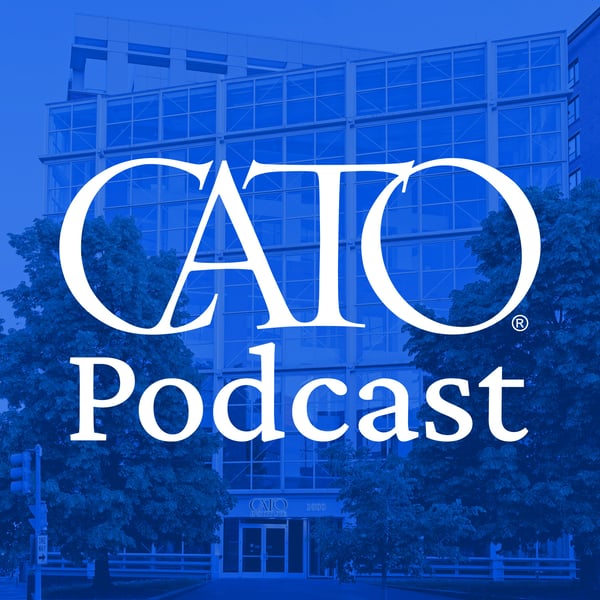Best of Cato Daily Podcast: By the People: Rebuilding Liberty without Permission
Cato Podcast
Cato Institute
4.6 • 949 Ratings
🗓️ 9 May 2025
⏱️ 16 minutes
🧾️ Download transcript
Summary
Caleb O. Brown hosted the Cato Daily Podcast for nearly 18 years, producing well over 4000 episodes. He has gone on to head Kentucky’s Bluegrass Institute. This is one among the best episodes produced in his tenure, selected by the host and listeners.
Civil disobedience may be the only avenue left for millions of Americans who just want to go about their business undisturbed. Charles Murray explains his dangerous idea in the new book, By the People: Rebuilding Liberty without Permission.
Hosted on Acast. See acast.com/privacy for more information.
Transcript
Click on a timestamp to play from that location
| 0:00.0 | This is longtime Cato Daily podcast host, Caleb Brown. After thousands of episodes over nearly 18 years, |
| 0:05.7 | I've moved on from the Cato Daily podcast, but in the interim, I, along with some of you, |
| 0:10.9 | have selected some favorites. I hope they resonate with our current moment and continue to spark |
| 0:16.3 | the desire to defend liberty. Thank you for listening. This is the Cato Daily podcast for Wednesday, May 13th, 2015. I'm Caleb Brown. What if all it |
| 0:26.5 | took to render vast chunks of federal regulation unenforceable with some civil disobedience |
| 0:32.3 | and some generous people with vision? Charles Murray believes it's both possible and promising. |
| 0:38.7 | He discusses his proposal in the new book, By the People, rebuilding liberty without permission. We spoke last |
| 0:44.3 | month. Going through the first portion of your book, it seems like a pretty bad story. And if this |
| 0:51.0 | were an adventure about halfway through, I'd be wondering, well, how are these people going to get out of this? |
| 0:57.2 | So how did our Constitution get broken in the way that you describe? |
| 1:03.6 | Well, let me just outline first what this first part of the book is trying to do. |
| 1:07.1 | I think the title of the first part is coming to terms with where we are, because a lot of |
| 1:12.6 | people who are libertarians and for that matter conservatives think, gee, if only we get nine |
| 1:18.1 | good justices in the Supreme Court, or even five, or only we got a big enough margin in the House |
| 1:24.6 | of Representatives and Senate and so forth. And I'm saying in the first five chapters, forget about it. If you're talking about better policy in education or welfare or something, sure, you can get there with those assets. But if you're talking about rolling back the power of government, you can't get there from here with the normal political process. And the Constitution is exactly |
| 1:45.3 | illustrative of that. So in the 1930s, the Constitution was still very close to intact. |
| 1:53.9 | There had been, you know, tweaks at the edges, but the enumerated powers were still a live |
| 1:59.7 | issue. You could only do what the enumerated powers said. |
| 2:03.1 | The Commerce Clause still meant an ordinary interpretation of the Commerce Clause. |
| 2:08.0 | And over a period of just five years from 1937 to six years to 43, you had about half a dozen key cases where they cannot be reversed. Because once you said, |
| 2:23.7 | oh, Congress may spend on the general welfare and is not limited by the enumerated powers, |
| 2:28.9 | you have had since then the expansion of the federal government that the Supreme Court cannot |
... |
Please login to see the full transcript.
Disclaimer: The podcast and artwork embedded on this page are from Cato Institute, and are the property of its owner and not affiliated with or endorsed by Tapesearch.
Generated transcripts are the property of Cato Institute and are distributed freely under the Fair Use doctrine. Transcripts generated by Tapesearch are not guaranteed to be accurate.
Copyright © Tapesearch 2025.

